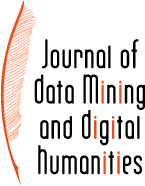 |
Marc Lebon - Contra Automata : orgueil et préjugés ?
jdmdh:9056 - Journal of Data Mining & Digital Humanities, 9 décembre 2022, Vers une robotique du traduire - https://doi.org/10.46298/jdmdh.9056[en]
The quality of Machine Translation (i.e. translation performed without direct human intervention) keeps improving, and yet it is often unfavourably considered. Machines don’t look like us humans, obviously; moreover, machines don’t think. How could they be able to translate? Yet translate they do, even though automation and thinking are often seen as complete opposites. Work on thought systematisation and automation – applied to language – started a long time ago. Kircher, Wilkins, Leibniz and a number of others sought universal harmony, quite often as a remedy for the Babel “Disaster”. They developed new languages that would be free of any defects or translation mechanisms that anybody could use. The methods they used sometimes bear uncanny resemblance with current Machine Translation processes. Alan Turing, who worked on automatism as a concept, played a pioneering role. There is therefore a clear case to be made for reconsidering some of our biases and abandon the comfort of obsolete certitude.
[fr]
La traduction dite automatique, réalisée sans intervention humaine directe et dont la qualité moyenne ne cesse d’augmenter, est encore souvent mal considérée. Non seulement les machines ne nous ressemblent pas, mais elles ne pensent pas ; comment pourraient-elles traduire ? Et pourtant, elles traduisent, bien qu’automatiser et penser soient souvent perçus comme des concepts antinomiques.Or il se fait que diverses formes de systématisation, d’automatisation de la pensée - de la pensée appliquée au langage - étaient déjà à l’œuvre bien avant le XXe siècle. Kircher, Wilkins, Leibniz et d’autres cherchaient une forme d’harmonie universelle, souvent liée d’une manière ou d’une autre à la réparation de la « catastrophe » babélienne, que ce soit grâce à une langue qui suppléerait aux défauts des autres ou au travers de mécanismes de traduction accessibles à tout le monde. Et ils le faisaient par des procédés qui évoquent parfois clairement certains aspects de la traduction automatique actuelle, rendue possible notamment par les travaux pionniers d’Alan Turing sur le concept d’automaticité. Il y a donc lieu de revoir certains de nos préjugés et de renoncer aux certitudes confortables et caduques.